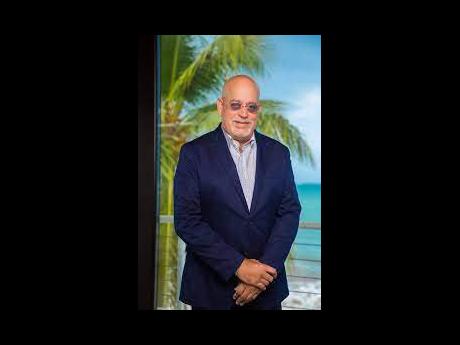Maritime execs tackle climate change impact on region at forum
As maritime transport faces increased measures this year, decarbonisation of the Caribbean and the shipping industry was the focus at the Maritime Energy Association and Net Zero Atlantic webinar recently.
The session entitled ‘Caribbean Ocean Decarbonisation – Current Efforts and Trends’ explored global trends in the maritime sector, the needs of the Caribbean decarbonisation space, and opportunities to enhance public and private collaboration.
Decarbonisation is the process of reducing greenhouse gas emissions from the global maritime sector with the goal of limiting global temperature increases to 1.5-degrees Celsius.
In his contribution, Eduardo Pagan, Caribbean Shipping Association Group D chairman and TOTE Marine vice-president, said the association began its thrust towards promoting decarbonisation and forming partnerships to encourage sustainable development several years ago.
One such initiative is the International Maritime Organization’s (IMO) regional Sustainable Maritime Transport system aimed at supporting small island developing states in the Caribbean build back better from the pandemic’s impact on the sector.
“We are, basically, at a point of trying best practices but at the same time trying to put a framework [in place] that will encompass the entire Caribbean base,” Pagan said.
He continued, “You need to realise that the Caribbean is a highly diverse number of islands, starting from islands with more than 10 million people living on it going down to islands that have only a few thousand people, and that actually brings a significant challenge to a number of islands to enter into a very rapidly decarbonisation phase, but we are, basically, sharing practices, starting from the basics.
“The main essence of decarbonisation is looking at decarbonisation as a continuous improvement programme. It never ends, and as many people as you engage in the process of decarbonisation, the more successful you’re going to be,” he concluded.
Racquel Moses, global ambassador of the United Nations Framework Convention on Climate Change, said the region is already experiencing the effects of a warming planet.
“The Caribbean has been on the front line of climate change for some time. The intensification of storms over the last several decades has been remarkable, and if it weren’t happening at the expense of our lives and livelihood, it would really be something that we would marvel at to see the changes that we are seeing in our lifetime,” said Moses, who is also chief executive officer of the Caribbean Climate-Smart Accelerator.
She added: “It’s happening in real time, and we are seeing this. With that in mind, we have an absolute stake in the game as to how do we perceive this effort to decarbonise, and while our emissions are below one per cent of global emissions, for us it is less about being a component of climate mitigation. It is more about how do we support global efforts to decarbonise because our lives depend upon it.”
She said the region has prospects to diversify its energy use and create a “green export market”, giving examples of geothermal resources in Eastern Caribbean territories such as Dominica. “The potential that we have with geothermal can really help us to create a massive export market that is bigger than our current economies. So what do we need to make this a reality?”
We definitely need collaborators on board. But if we are talking about a complete change in the way that we do things. We need collaborators who are willing to put some spin in the game. We need collaborators who are willing to invest in a real way and take risks. We need collaborators who are willing to pursue arrangements that are win-win, not win-lose or lose-lose.”
As part of the IMO’s thrust to improve energy efficiency in the short term, thus reducing greenhouse gas emissions, a slate of measures came into effect on January 1, 2023. This includes a requirement for all ships to measure their energy efficiency and determine their annual operational Carbon Intensity Indicator (CII) and its associated CII rating. Carbon intensity links ships’ emission to the amount of cargo carried over the distance travelled.



